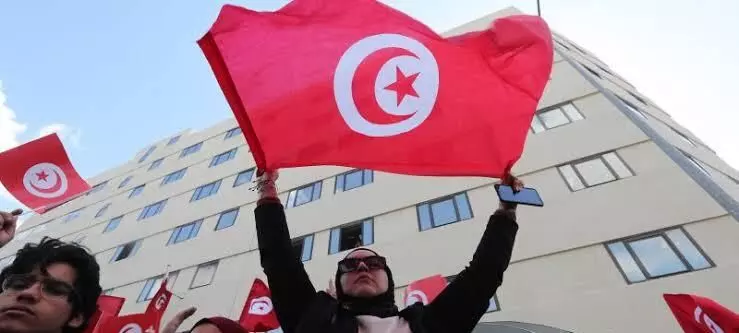
Critics accuse Tunisian President of coup after sacking PM and freezing parliament
text_fieldsTunisian President Kais Saied dismissed Prime Minister Hichem Mechichi and froze all parliamentary activities late Sunday, July 25, and was met with opposing political parties calling the move a coup.
The announcement was made by the President through a video broadcast on Facebook following an emergency meeting with senior security officials.
President Kais Saied additionally nullified immunity privileges held by parliament members and stated that until a new Prime Minister is appointed, he will head the government.
Saied invoked the constitution to remove Hichem Mechichi from his post of Prime Minister, reported Reuters. Additionally, the suspension of parliament activities will take place for a period of 30 days.
According to Reuters, the move came a day after violent demonstrations broke out in protest against the country's recent Covid-19 spike and failing economic and social infrastructure. The demonstrators were also largely demanding the dissolution of the Islamist Ennahda party— the largest currently in parliament.
The announcement was followed by celebrations in the street by Saied's supporters, reported Reuters.
However, Saied's opponents are calling the series of events a coup directed by the President. Parliament Speaker Rached Ghannouchi and leader of the Islamist Ennahda party called on the people of Tunisia to protest, calling Saied's decisions "a coup against the revolution and constitution", reported Reuters.
President Saied has warned protesters against the use of armed responses, stating that "Whoever shoots a bullet, the armed forces will respond with bullets."
Heart of Tunisia and Karama, two other political parties in parliament, joined the Ennahda party in calling Saied's decisions an attempt at a coup.
Former president Moncef Marzouki, leader of the political party Karama, said in a video statement: "I ask the Tunisian people to pay attention to the fact that they imagine this to be the beginning of the solution. It is the beginning of slipping into an even worse situation."
Ennahda told Reuters that: "We consider the institutions still standing, and the supporters of the Ennahda and the Tunisian people will defend the revolution."
Tunisia's autocratic government was overthrown for a democratic one following the Tunisian Revolution, also called the Jasmine Revolution of 2011.























